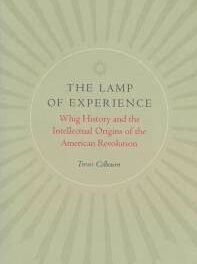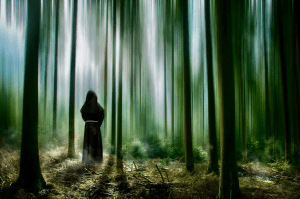We support our Publishers and Content Creators. You can view this story on their website by CLICKING HERE.
Perhaps, when we survey the splendour of the literary legacy of the British Isles, we should remind ourselves that the one golden rule is that there was not one golden age. Instead, and glory of glories, from the time of the Anglo-Saxons until the most recent of times, one golden age has simply made way for the next.
G.K. Chesterton wrote a book entitled The Victorian Age in Literature which focused on the literature published in Britain during the illustrious reign of Queen Victoria (1837-1901), the longest reigning monarch in English history until that of her equally illustrious great-great-granddaughter, Elizabeth II (1952-2022). Chesterton’s book testifies to the fact that the Victorian age was a golden age of English literature. It was not, however, the only golden age. There had been others.
Great literary works were being published as early as the seventh and eighth century in what might be called the golden age of Anglo-Saxondom. This period saw the appearance of Saint Bede’s Ecclesiastical History of the English People, as well as being the probable date for the composition of Beowulf, England’s epic. It was the age of Saint Caedmon, “the father of English Sacred Song”, whose “Hymn” is justly celebrated, as well as being a period in which nameless bards wrote timeless classics, such as “The Dream of the Rood”.
Old English, the language of the Anglo-Saxons is indecipherable to modern English speakers, which means that it is not so much the mother tongue but the grandmother tongue which, when married to Norman French, gave birth to the modern English language recognizable today.
The father of English poetry is Geoffrey Chaucer, author of The Canterbury Tales, who presided over the golden age of medieval English verse in the fourteenth century, a period which also saw the appearance of William Langland’s Piers Plowman and the anonymously authored Sir Gawain and the Green Knight. Next comes the incomparable age of Shakespeare in the late sixteenth and early seventeenth century, a golden age which needs no further comment because it speaks for itself in the sense that Shakespeare speaks for it.
The next golden age was the period of English Romanticism, which immediately preceded the Victorian Age. Beginning at the end of the eighteenth century with the emergence of the poetry of William Wordsworth, William Blake and Samuel Taylor Coleridge, it would continue with the second generation of Romantic poets, Byron, Shelley, Keats and Sir Walter Scott, the last of whom wrote highly esteemed novels, as well as poetry. This was also the period in which the incomparable and indomitable Jane Austen reigned supreme. The Victorian Age in literature began, therefore, with a rich cultural heritage at its disposal inspirationally.
If the age of Shakespeare should be considered the golden age of drama, the Victorian age could be seen as the golden age of the novel, not just in Britain but in Europe, especially in France and Russia. Since, however, the Victorian Age refers specifically to the reign of the ruler of Britain and her burgeoning Empire, it refers also and equally specifically to British and not continental literature.
The list of great novelists from this period is nothing less than a litany of literary genius: The Brontë sisters, Charles Dickens, George Eliot, Elizabeth Gaskell, Thomas Hardy, Robert Louis Stevenson, William Makepeace Thackeray, Anthony Trollope and Oscar Wilde, to name but an illustrious few. The list of great poets is equally impressive: Matthew Arnold, Robert and Elizabeth Barrett Browning, Gerard Manley Hopkins, Rudyard Kipling, Coventry Patmore, Dante Gabriel and Christina Rossetti, Algernon Charles Swinburne, Alfred Lord Tennyson and Francis Thompson.
As for the spirit of the Victorian Age, it defies categorization. It was an age of industrialism and imperialism, and an age of science and scientism, but it was also an age of neo-medievalism, which was made manifest in the Gothic Revival, the Pre-Raphaelites and the Oxford Movement. It was an age of the loss of faith, epitomized by Matthew Arnold’s melancholy musings in “Dover Beach”, but also an age of reviving faith, especially with the Catholic literary and cultural revival which followed John Henry Newman’s conversion in 1845.
An age of conflict and conflicting philosophical forces, the Victorian Age in literature is multifaceted. It is many things. Whatever else it was or wasn’t, there is no denying that it is worth celebrating. It was not, however, the final golden age of English literature. On the contrary, the twentieth century would witness works of genius that rival those of any previous age. In poetry, the tradition-oriented Muse of the poets of the early years of the century would make way for the modernist spirit which followed it and replaced it. Thus, the century began with poets, such as Belloc, Chesterton, Yeats, Housman, Kipling, Alfred Noyes and Walter de la Mare. The horrors of World War One would inspire some of the greatest war poetry ever written, especially in the battle-scarred musing of Siegfried Sassoon and Wilfred Owen. The period following World War One was dominated by the modernist spirit of T.S. Eliot, who can be included in this survey of the golden ages of British literature, even though he was born in the United States, because he spent most of his life living in London and wrote almost all his greatest work during his time in Britain.
If the last century was graced by many great poets, it was also blessed with many great novelists. Chesterton wrote some quirkily brilliant novels in the early years of the century but the golden age of twentieth century fiction was the 1930s to the 1950s, a period which saw classic works of fiction by Huxley, Waugh, Greene, George Orwell, C.S. Lewis and J.R.R. Tolkien.
Perhaps, when we survey the splendour of the literary legacy of the British Isles, we should remind ourselves that the one golden rule is that there was not one golden age. Instead, and glory of glories, from the time of the Anglo-Saxons until the most recent of times, one golden age has simply made way for the next. May the Lord of the all the Muses be praised!
Joseph Pearce’s latest book, Classic Literature Made Simple: Fifty Great Books in a Nutshell, is newly published by Ignatius Press.
The Imaginative Conservative applies the principle of appreciation to the discussion of culture and politics—we approach dialogue with magnanimity rather than with mere civility. Will you help us remain a refreshing oasis in the increasingly contentious arena of modern discourse? Please consider donating now.
The featured image is “Portrait of a Man Reading” ( (1858–1928)) Henry Siddons Mowbray, and is in the public domain, courtesy of Wikimedia Commons.

 Conservative
Conservative  Search
Search Trending
Trending Current News
Current News 





